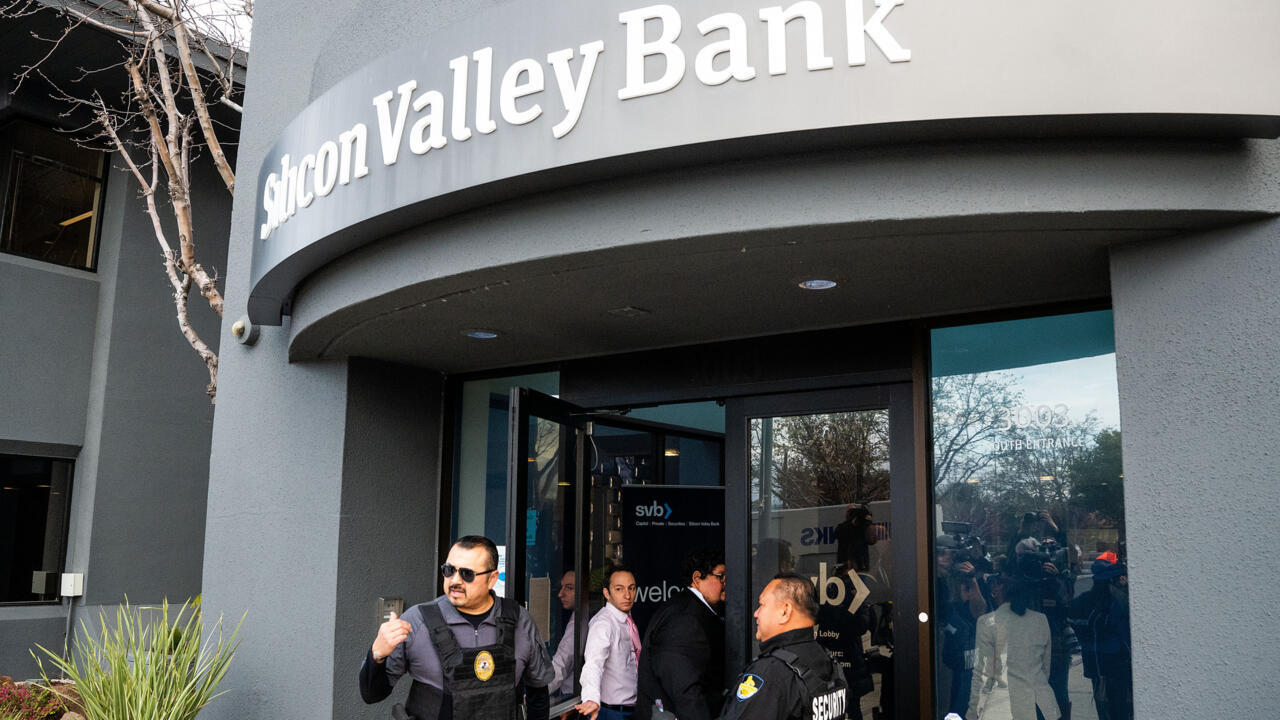The US president on Thursday asked regulators to restore most regulatory constraints for U.S. regional banks. The bankruptcies in early March of Silicon Valley Bank (SVB) and Signature Bank highlighted the flaws in the system, with only large institutions subject to strict supervision.
He wants mid-caps with assets of between $100 billion and $250 billion - which was the case for these two banks - to be subject to obligations again.
And in particular the famous "stress tests", an exercise conducted by regulators to check how an institution would behave in the event of major disruptions, and which makes it possible to determine whether a bank has enough capital and liquidity available to withstand one or more external shocks.
The Dodd-Frank Act was passed after the 2008-2009 financial crisis to better regulate the activity of major US banking institutions, but was relaxed in 2018 under the impetus of former Republican President Donald Trump.
Congress had approved, by a large majority including Democrats and Republicans, the lifting of a series of regulatory and prudential requirements imposed on credit institutions with assets of at least $ 50 billion and up to $ 250 billion.
The Dodd-Frank Act had "imposed significant reforms to ensure that these institutions can better absorb losses and meet customers' credit and liquidity demands," Treasury Secretary Janet Yellen said Thursday in a speech to economists at the National Association for Business Economics (NABE).
"Regulatory requirements have been relaxed in recent years. I think it is appropriate to assess the impact of these deregulation decisions and take the necessary measures accordingly," said Joe Biden's Minister of Economy and Finance.
"Eternal debate"
She referred to "the perennial debate on the appropriate role of government in regulating the financial sector".
"Waves of financial regulation have often been followed by concerted deregulation efforts, based on the belief that regulation is ineffective and stifles financial innovation and economic growth," she said.
On the contrary, for her, "our prosperity depends on efforts to preserve financial stability before a crisis occurs".
Since the fall of SVB and Signature Bank, dozens of elected Democrats have called for the reinstatement of the provisions canceled in 2018 and tabled a bill to this effect.
However, the measures requested Thursday by President Biden "could be taken without legislative changes, without congressional intervention," said a White House official.
It is necessary to "finalize the post-crisis reforms, ask whether deregulation has not gone too far and repair the cracks in the regulatory perimeter revealed by recent shocks," commented Janet Yellen. But also to expand, and "address the vulnerabilities of the non-banking sector", financial companies that play the role of banks.
Janet Yellen during her speech to NABE in Washington on March 30, 2023 © ANDREW CABALLERO-REYNOLDS / AFP
The American Bankers Association (ABA), however, said it was "premature to call for rule changes by independent regulators before determining the extent to which regulators have not made full use of their existing regulatory tools and powers," according to a statement.
"Allowing for a thoughtful and deliberate process will yield better and more sustainable results," says the federation, which brings together institutions of all sizes.
The regulation of banks in the United States is divided between three separate entities, the US central bank (Fed), the Deposit Insurance Agency (FDIC) and the OCC (Office of the Comptroller of the Currency), an authority that supervises some 1,200 banks present in several American states.
The White House did not mention the Fed, which is an institution nominally independent of the executive branch and does not receive direction from the government. It is she who carries out the "stress tests" on the banks.
© 2023 AFP

